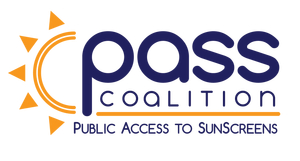PASS Coalition Applauds National Academy of Sciences Study on Sunscreen Impacts and Its Support of Sunscreen as a Skin Cancer Prevention Tool
PASS Coalition Applauds National Academy of Sciences Study on Sunscreen Impacts and Its Support of Sunscreen as a Skin Cancer Prevention Tool
HONOLULU--(BUSINESS WIRE)--The Public Access to SunScreens (PASS) Coalition is committed to ensuring that everyone has access to all FDA-approved sunscreens as an important part of sun safe practices.
The PASS Coalition applauds the National Academy of Science’s objective and rigorous process and review of scientific research regarding the impact of sunscreens on public health and the environment.
Below are some key highlights from the report:
- Restrictions on certain UV filters may have negative impacts on the use of sunscreen to prevent skin cancer, sunburn, and photoaging if they lead to reduced sunscreen usage. The ability to purchase broad-spectrum, SPF 30+ sunscreen that people will actually use, is a key determinant of health outcomes, with increased use of sunscreen the scenario most likely to lead to positive effects on health.
- Environmental variables, including increasing temperatures, are of particular concern for aquatic ecosystems due to the potential for increasing cumulative and interacting impacts from climate change.
- The science on sunscreens is still evolving. Environmental exposure and hazard data on sunscreen ingredients are limited, and there is not widespread agreement about whether the available research sufficiently supports conclusions that individual ingredients have, or do not have, negative affect on aquatic organisms.
While there has been a push for bans of all non-mineral sunscreens in places like Hawaii, the NAS report states that there is currently insufficient data about the impact of sunscreens on aquatic environments and makes recommendations to the EPA for risk assessment parameters so that future studies can help determine any potential impacts.
Rich Gold, former Clinton Administration EPA official and senior advisor to the PASS Coalition, stated, “The report’s findings make clear there is a scientific consensus around the public health risk from sun exposure and the benefit from sunscreens. However, there is no scientific consensus at this point on the impact of sunscreens in the marine environment. As a former EPA regulator, I don't think the data are there today to justify restrictions on the use of sunscreen in marine environments. To impose such restrictions today is to place hypothetical risk to the environment above known risk to human health.”
Public health groups across the nation are concerned about what these bans could mean for skin cancer prevention.
"We are encouraged by the National Academies' comprehensive review of this issue that aligns perspectives from both the public health and environmental science,” says Melanoma Research Alliance Chief Executive Officer Marc Hurlbert, PhD. “Melanoma and other skin cancers remain a significant public health threat, and we want to ensure that Americans have access to – and are informed about – sunscreen and other sun safe practices needed to reduce UV exposure and prevent these cancers. We look forward to working with any and all communities to help carry out the important NAS recommendations for the benefit of public health and our environment."
The PASS Coalition supports local and global efforts to address the major threats to coral reefs such as warming ocean temperatures due to climate change, land run off, and wastewater management. We encourage the EPA to promptly consider the NAS committee’s recommendations for a risk assessment that should inform future policy decisions on sunscreens.
Given the importance of sunscreen for public health and the lack of conclusive data about its impact on the environment, we urge lawmakers not to create additional barriers for consumers to choose safe, effective and FDA-approved sunscreens to protect themselves against skin cancer and other damage from sun exposure.
ABOUT PUBLIC ACCESS TO SUNSCREENS
The Public Access to SunScreeens (PASS) coalition is a multi-stakeholder group composed of public health groups, dermatologists, sunscreen manufacturers, and leading advocates for skin cancer patients. For more information visit passcoalition.com.
Contacts
Media
Ethan Jorgensen-Earp
Ethan.Jorgensen-Earp@hklaw.com
